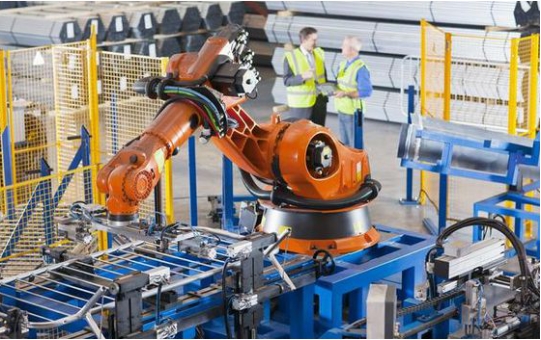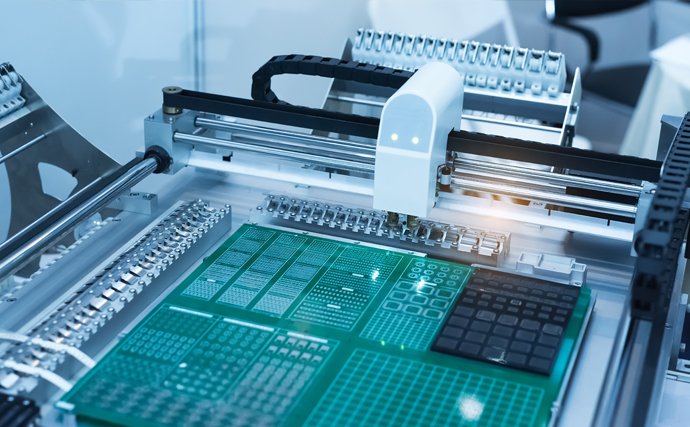
news
One way to rapidly increase the company's production rate
From automation to intelligence, the transformation of China's manufacturing industry is an inevitable choice. Because with the rapid development and growth of the world economy, intelligent manufacturing factories will bring transformation and impact to all industries, and will also lead the global manufacturing development model forward and innovate. Artificial intelligence is particularly important in such an environment. Intelligent manufacturing requires disruptive new technologies such as artificial intelligence to build flexible, efficient, responsive, and secure industrial factories and supply networks in the future. Many manufacturing companies are now using artificial intelligence to achieve smart manufacturing, maximize the effort of reducing labor, and improve manufacturing quality.

When it comes to artificial intelligence in the industrial field, people's first thought is industrial robots. In fact, in addition to industrial robots, there is much artificial intelligence in intelligent manufacturing applications, the following is a small introduction to introduce you to the more major categories: the first category is a relatively simple application of data visualization and analysis: artificial intelligence in addition to the ability to collect the data of equipment operation (such as temperature, rotating speed, energy consumption, productivity conditions, etc.), and store data for secondary analysis for energy-saving optimization of production lines. Detects in advance whether the equipment is operating abnormally and at the same time provides measures to reduce energy consumption.
The second type is to allow the machine to self-diagnose. For example, if a production line suddenly issues a malfunction alarm, the machine can diagnose itself, find out where the problem arises and what the cause is, and also tell us how to fix the malfunction based on historical maintenance records or maintenance standards, or even let the machine solve and recover itself. The third type is predictive maintenance through artificial intelligence technology. We know that if an industrial production line or equipment suddenly goes down, the damage caused is very huge. So we use artificial intelligence technology to let the machine sense or analyze the possible problems before they occur. For example, if blades in a CNC machine in a factory needs to be replaced after running for a period of time, by analyzing the historical operation data, the machine can know in advance when the blades will be damaged, so that it can prepare the replacement parts in advance and arrange to replace the blades at the latest maintenance. The fourth category is to take measures in advance to optimize operations, such as energy saving. In the industrial fields, energy-saving optimization of production lines is carried out by analyzing historical operation data, plant scheduling, and equipment configuration parameters, etc., to detect abnormal energy consumption in advance and provide measures to reduce it.

Several typical cases of artificial intelligence technology applied to industry: (1), replace the naked eye inspection operations to achieve intelligent and unmanned manufacturing inspection. For example, in the classification of engineering rock, by using artificial intelligence, the experience of engineers turns into deep learning algorithms, the accuracy rate is comparable to the manual judgment. There are also auto parts manufacturers, through the use of deep learning algorithms, who can transform the artificial inspection experience into algorithms, to achieve unmanned inspection. Such as SMT First Article Inspection System FAI-600 that developed and produced for SMT production, can replace the traditional first article inspection by humans, not only can save manpower, but also has a qualitative improvement of quality control of the product. (2), significantly improves the operational performance of industrial robots, enhances the automation of manufacturing processes and unmanned industrial operations require picking. Such as parts picking, if using humans, it will be slow and costly and needs to maintain a suitable temperature for the working environment (air conditioning in summer, heating in winter, etc.). If using industrial robots, it can significantly reduce costs and improve speed. Like SMT automatic feeders, automatic dispensing machines, etc., can significantly improve the production efficiency of only equipment (3), advance detection of abnormal (perception) of industrial robots to effectively avoid the loss and impact of machine failure. For example: to provide industrial robots with reducer and spindle, if they are equipped with sensors, with machine learning, the learning model can detect subtle changes that are difficult for humans to perceive through the observed waveforms, and provide effective warnings weeks before the robot fails. Actual data also shows that AI can predict failures earlier than humans, thereby reducing losses.
Information reports: Smart manufacturing technologies, which combine artificial intelligence technologies, robotics, and digital manufacturing technologies, will be used throughout all aspects of the manufacturing industry, including design, production, management, and service, and are giving rise to smart manufacturing and leading a new round of manufacturing changes. These technologies will make manufacturing more creative, more localized, personalized, and reduce costs.



 Official Account
Official Account